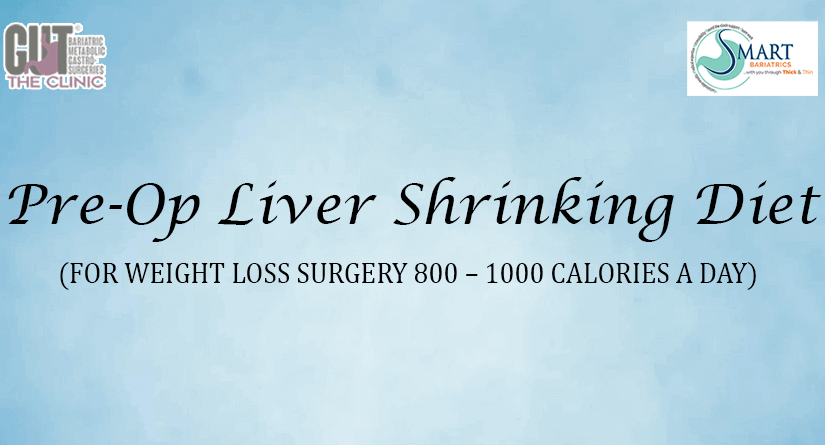Managing Diabetes After Bariatric Surgery: Postoperative Guidelines and Adjustments
Bariatric and metabolic surgery changes the anatomy of the gastrointestinal tract in a beneficial way, this alteration increases good hormones. After bariatric surgery, there is an augmented release of hormones like GLP-1 and PYY from the small intestine that leads to improvement in high blood sugar levels, effectively managing diabetes after bariatric surgery.
Since bariatric surgery is a highly efficient tool to reduce the blood sugar levels in an obese diabetic patient, there is a need for adjustment of anti-diabetes medicines in these patients post-surgery.
Moreover, there is decreased calorie intake after bariatric surgery for which dose adjustments of the anti-diabetes medicines are needed.
Before surgery, high A1C patients are usually switched over to intravenous insulin, and blood glucose is monitored at regular intervals.
The postoperative management includes:
- Phases 1 and 2 are of clear liquids to a full liquid diet for 2 weeks. At this stage, the calorie Intake is about 600 to 800 kcal/day.
- Phase 3 is of pureed diet.
- Phase 4 consists of a soft to normal diet and the calorie intake is about 1000 to 1200 kcal/day.
- In the post-operative period, blood sugar is monitored 4 hourly if in range, and every 2 hours or earlier if insulin infusion is being given.
- Insulin infusion is stared if the blood sugar persistently remains above 180mg%
- The patient may not require any antidiabetic agents especially those who were only on OHG agents pre-op.
- Those who were on basal and parendial glucose will require insulin post-operatively, a gross rule of thumb is to half the daily requirement at discharge.
- DPP4 inhibitors are a safe choice for discharge
- Metformin may be withheld in CKD patients in the immediate post-op due the uncommon risk of lactic acidosis.
- Sulfonylureas are relatively contra-indicated owing to their prolonged action and increased risk of hypoglycemia.
- Strictly monitor urine ketones and ketoacidosis.
- If urine ketones appear add 100 ml of apple juice twice a day.
- On discharge, the patient is shifted to tablets along with or without basal insulin for the initial few days.
The patient is taught to measure and chart blood sugar twice daily or in a few cases thrice daily and the doses are adjusted accordingly. Subsequently, as patients lose weight, there is a further decrease in the requirement for drugs. Most of the time, almost all of the drugs are withdrawn to avoid any hypoglycemic episode. It is advised to maintain a blood sugar level between 120 to 150 mg %. Remission of diabetes is seen in close to 80% of patients who do not need any treatment. There is a continuous need for follow-up with at least 3 monthly HbA1c levels.
In patients with poorly controlled diabetes mellitus, withdrawal of drugs may precipitate ketoacidosis in the early postoperative period. These patients are monitored carefully for symptoms and signs of diabetic ketoacidosis.
GENERAL GUIDELINES
To monitor blood glucose at least twice a day with the aim to maintain it between 140 and 160mg/dl.
Tab metformin is started on day 1 of discharge if there is no nausea better still once the patient has switched over to a pureed diet. The long-acting insulin doses are reduced by 50%.
Signs and symptoms of stress hyperglycemia include frequent urination, increased thirst, blurred vision, fatigue, headache or ketoacidosis which includes fruity-smelling breath, nausea and vomiting, shortness of breath, dry mouth, weakness, confusion, coma, abdominal pain must be addressed carefully and must be monitored by watching blood gases as well as urinary stones.
Patients must be educated about signs and symptoms arising from hypoglycemic episodes (blood sugar less than 70 mg%) like shakiness, dizziness, sweating, hunger, irritability or moodiness, anxiety or nervousness, and headache.
During such episodes, the patient must take 150–200 ml of fruit juice or milk if on a liquid diet; if on solids any sweet candy. Similarly patient can take curd or yoghurt if on a pureed diet.
Such people must also take adequate protein supplements to avoid episodes of hyper or hypoglycemia.
Looking for the best bariatric surgery in Delhi for diabetes? Visit us at Smart Cliniqs.










